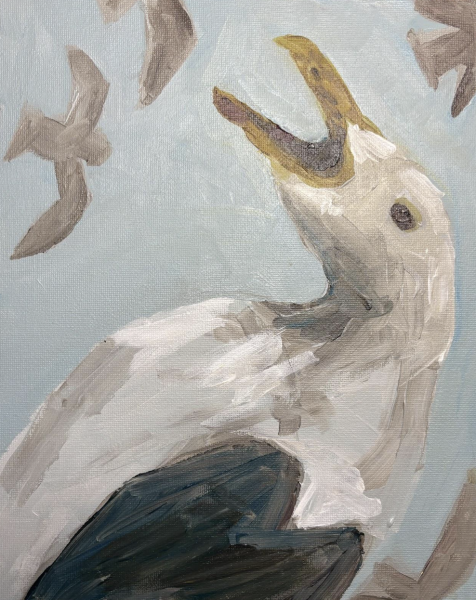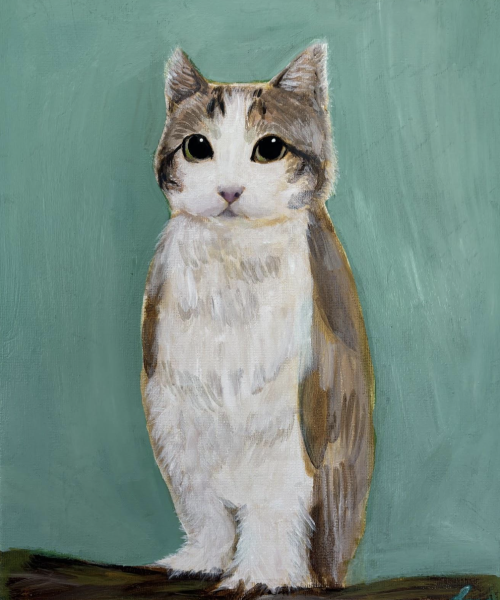The controversy over fur in the fashion industry
In the fashion industry, fur has played a dominant role in fabrics that are sent down the designer runway, but many have come to boycott the incorporation of real animal fur in pieces such as coats and scarves in order to outwardly stand against animal cruelty.
With celebrities such as Kanye West utilizing fur and other animal products, like leather, in their designer brands, there has been a push back by fashion enthusiasts and animal rights activists on the use of fur in clothing. Other renowned artists, such as Jennifer Lopez and Beyonce, have been spotted wearing real fur coats out on the streets in the past. Despite the large fan bases these artists have, there is a widespread concern about using fur, leather, cashmere and other animal related materials in the fashion industry.
Many believe that animals’ safety and rights to live trumps the desire to look chic and wealthy in a fur ensemble. When current celebrities step out in an extravagant fur coat, some marvel at the fabulous “old Hollywood” vibes the sleek fur gives off, while others shake their heads at the ignorance they believe these stars have to accept animal cruelty. With their fame, A-list celebrities hold the power to promote what is ethically right in hopes of spreading their respectable values to those who look up to them for inspiration. It is unfortunate to many that a number of celebrities choose to ignore their huge influence and continue to disregard animal cruelty by layering themselves in exotic furs and other fabric made by taking advantage of animal species. In retrospect, not all of Hollywood is willing to step out in a mink coat — there are several famous people who side with organizations such as People for the Ethical Treatment of Animals (PETA) and verbally advocate against the torture and murder of animals in the fashion industry. Among these celebs are Charlize Theron, Pamela Anderson, and Olivia Munn.
PETA activists push for the incorporation of faux fur in place of the real animal fur that multiple designers utilize. With PETA’s influence, these activists were able to get major retail stores to stop selling real fur. Some of these major stores include Forever 21, J. Crew, and Topshop. PETA and other organizations such as the Fur Free Alliance also advocate for no fur in fashion because of the damage the production causes environmentally. The Fur Free Alliance believes fur production is a penetratingly polluting and energy consumptive process. Animal fur must be treated with toxic chemicals so it does not rot and these chemicals, specifically chromium and formaldehyde, are proven to be environmentally harmful.
On the other side of the argument, there stands a group of advocates who believe the production of real animal fur in fashion is actually better for the environment because it steers away from fast fashion production. Fur products may cost way more than an imitation, but it outlasts faux fur and is biodegradable, therefore arguably better for the environment in the long run. People who believe this still face the issue that animals are treated inhumanely and ultimately killed during the production of fur pieces, but this is an ethical concern that resides within people’s inner individual values. Believe it or not, there are people who want to wear real fur in order to exercise their high status or great wealth through fashion statements because these individuals have contrasting principles to those who stand with PETA. Designers continually cater to the population of high fashion consumers through the use of leather and fur in their expensive garments so that their brand stays successful. It is the duty of these well-known designers to stray away from these materials in their designs in order to communicate to fashion lovers that you can still look stylish without sporting luxurious-looking rabbit fur. It is up to the public to adopt the faux animal product trend, instead of sinking under the pressure of high fashion and splurging on a fur coat in order to look classy, rich, and fashionable.
The Roger Williams University campus is dominated by frigid winds for a majority of the school year, yet real fur is not a common fashion item spotted among students. It seems that many RWU students stand with PETA and refrain from buying fur products and go for the inexpensive faux fur take.
Sophomore Abby Mclean voiced her opinions on the matter.
“Animals are becoming endangered and while we’re here we should take care of them,” she said.
Hazardous tests on endangered animals have been prominent in the fashion industry for solely profit-driven benefits and have led to negative effects on our environment. Ultimately, whether you are a faux fur activist or not, the dispute exists and must be focused on in order to create the best methods and products used in the clothing industry that do not harm the environment.





